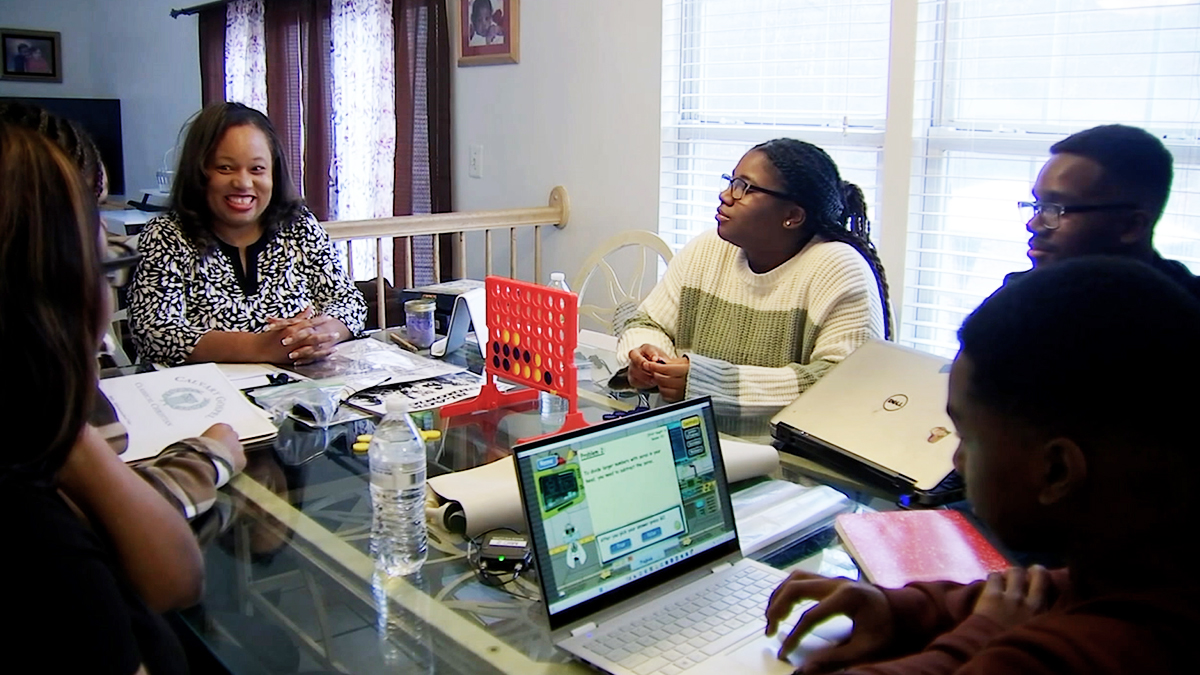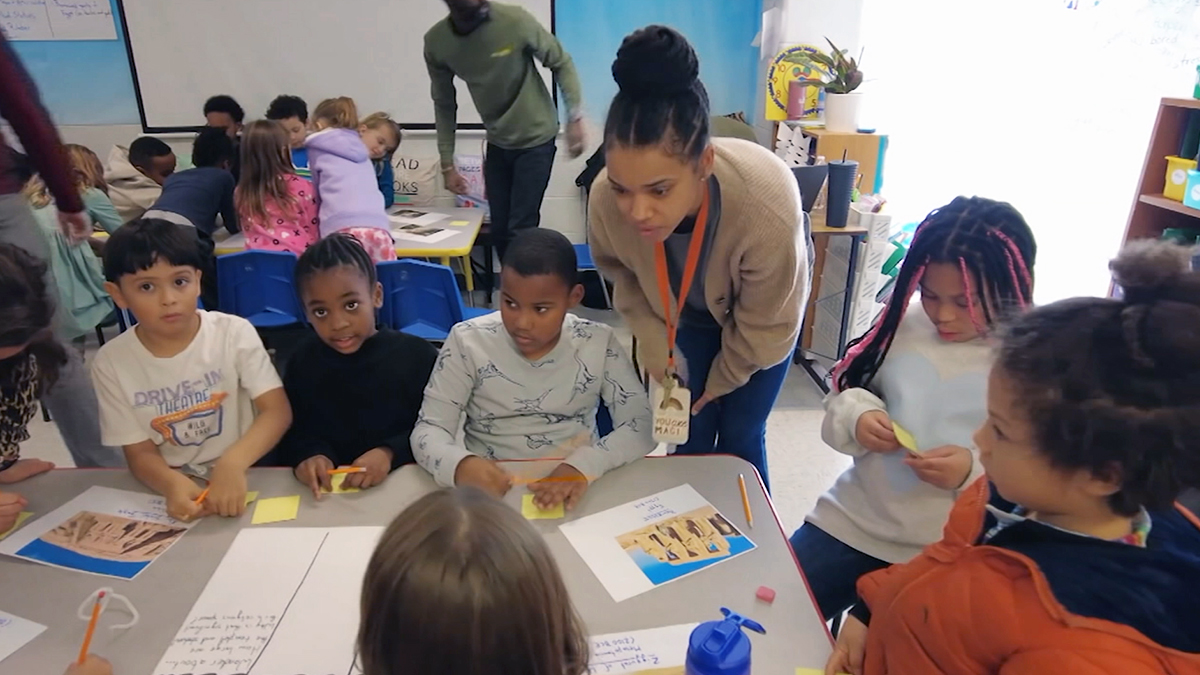“Dear Abigail, Congratulations. I am delighted to inform you that the committee on admissions has admitted you to the Harvard Class of 2028.”
Abigail Taylor grinned as she read her Harvard University acceptance letter out loud. The senior at Bishop McNamara High School in Forestville, Maryland, was laser-focused on getting into Harvard and was admitted through the school’s early action program.
The 18-year-old is part of the nation’s first high school class to apply to college since the Supreme Court ended affirmative action in the college admissions process.
“I’m ready. I’m so excited to enroll and continue on this journey,” Taylor said.
At the time of the high court’s ruling, Taylor was overseas in a study abroad program in Macedonia. She sought guidance from Shamelle Yemofio. She’s the director of counseling at Bishop McNamara and attended UNC.
Yemofio advised Taylor to share her racial experiences in her Harvard essay.
“When the ruling first was announced, I wanted to make sure that Abby and other students did indeed include their race, because it is their lived experience,” she said. “Race and culture should be celebrated and not silenced, and so that's what I wanted my students to take away from that experience, because it is a part of who she is.”
In her essay, Taylor wrote about her study abroad experience.
“Being a Black woman in Eastern Europe is not a common thing, so, a lot of experiences I had there definitely pointed me toward just a passion for mutual understanding and being able to show something from my community and my culture and learning something back from other communities and cultures,” she said.
Taylor said her maternal grandparents met at Harvard Medical School but she did not use legacy on her application.
‘We worried about our students’
After the Supreme Court ruled that Harvard and the University of North Carolina’s race-conscious admissions policies were unconstitutional, the impact on those campuses will be immediate, Brookings Institution fellow Sara Reber said.
“I think it is pretty clear that racial diversity will decline in the colleges that were part of the litigation. So, that's Harvard and UNC,” she said.
“I definitely don't want to downplay the importance of the decision because there's going to be, I think, some negative consequences of that. But most students go to colleges that weren't considering race in admissions in the first place, so won't really be changing their processes,” Reber added.
Weeks after the court’s ruling, the American Civil Liberties Union reiterated its findings on the benefits of diverse campuses.
“Schools will need to rely more on other means of cultivating a campus where students of all backgrounds can learn together,” the group said.
Yemofio, the school counselor, said the ruling raised concerns.
“I saw a panic among my colleagues – my adult colleagues in the education field – because we reflected on our experience of affirmative action and we were worried about our students,” she said.
She said the ruling only affects about 10% of U.S. colleges and for most students, nothing will change.
Taylor said she has her sights set on her future.
“I hope that after I gain my education, I'll be able to continue a career in foreign policy and diplomacy, perhaps joining the State Department or potentially the United Nations – bringing communities together,” she said.



